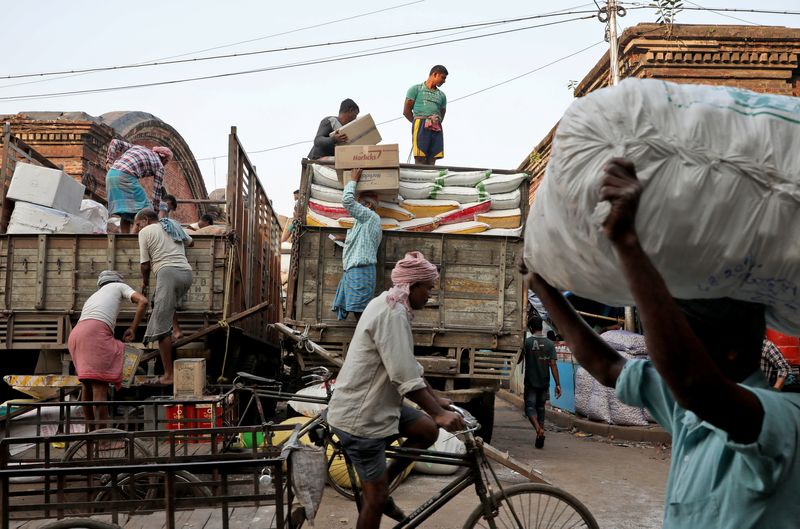By Vivek Mishra
BENGALURU (Reuters) - The Indian government will focus on fiscal consolidation in its Feb. 1 budget, the last full one before a 2024 general election, according to a Reuters poll of economists who said slowing economic growth would limit it from spending more.
Breaking a tradition of government borrowing and spending, especially during an election year, Prime Minister Narendra Modi's government has, since coming to power in 2014, largely stuck to a path of fiscal consolidation.
But the COVID-19 pandemic severely affected government finances, pushing the fiscal deficit for 2020-21 to a record 9.3% of gross domestic product (GDP), significantly higher than the budgeted 3.5%.
A fiscal deficit of 6.9% for 2021-22 and an expected 6.4% for 2022-23 were expected to be followed by a further fall in the next fiscal year.
The median forecast from 37 economists polled from Dec. 13 to Dec. 21 was for the government to limit borrowing to 6.0% of GDP in 2023-24 - well above the historic average of 4%-5%. Predictions ranged from 5.7% to 6.8%.
"We have global economic slowdown concerns and that will have ripple effects on the Indian economy. So the scope for progressive spending ... as a factor to drive growth is limited," said Upasna Bhardwaj, chief economist at Kotak Mahindra Bank, who said the focus would be on capital expenditure.
Bhardwaj said much would depend on tax collections, adding that despite a robust current year, "they will not sustain into next year".
More than 80% of the economists, 29 out of 35, who answered an additional question said fiscal consolidation was likely to be the dominant theme in the budget Finance Minister Nirmala Sitharaman is expected to announce on Feb. 1.
The government on Tuesday made clear that despite external shocks and global uncertainties it intends to meet the fiscal deficit target of 4.5% of GDP by the end of the 2025/26 year.
Efforts to maintain fiscal discipline reflect concern over India's sovereign credit rating, currently at BBB-, just a notch above junk status.
That will likely limit the government's ability to provide relief to households and businesses facing an uneven recovery from the pandemic.
While growth was expected to be faster than that of many other economies, it would be too slow for the job creation needed to pull tens of millions out of poverty in a country where many scratch a living on a dollar or two a day.
Economic growth likely slowed sharply to an annual 4.6% in the December quarter from 6.3% reported in the preceding quarter. It was expected to slow to 4.4% in the next quarter, the poll found.
Sitharaman's expected fiscal prudence coincides with state assembly elections in Karnataka, Chhattisgarh, Madhya Pradesh and Rajasthan in 2023, which would likely discourage the government from making deep cuts to social welfare.
"Both economic and political compulsions will mean a more challenging environment for aggressive fiscal consolidation next year," said Sonal Varma, chief economist at Nomura.
Among those who expect it to be a more populist budget, some said the government would announce new subsidies, an increase in healthcare and rural spending to boost jobs.
"The last full budget before the general elections might have a stronger political undertone," noted Samiran Chakraborty, chief economist at Citi.

"Given weakness in (the) rural economy, some expenditure could be reoriented towards existing rural schemes like MGNREGA (Mahatma Gandhi National Rural Employment Guarantee Act), rural housing, roads etc. Schemes for urban poor/hike in minimum wages could be surprise elements."
(For other stories from the Reuters global economic poll:)